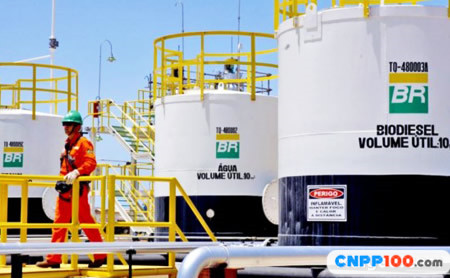
Petrobras, founded in 1953, is a national oil company with petroleum as the main body/upstream and downstream integrated multinational operation, overseeing the exploration/development/production/transportation of Petrobras and the operation and management of enterprises
Petrobras was founded on October 3, 1953, also known as Petrobras, is a national oil company with oil as the main body and integrated upstream and downstream transnational operations. At that time, Decree No. 2004 declared that Brazil's oil industry began at the end of the 19th century. In 1917, the state-owned enterprise had a monopoly on petroleum, and Petrobras not only participated in the formulation and implementation of oil policies, but also oversaw the exploration, development, production, transportation and operation and management of Brazilian oil.
In 1997, the Brazilian government promulgated Decree No. 9478, which stipulated that from August 6, 1997, the petroleum management and administrative enterprises were separated, and the Brazilian National Petroleum Agency (Agencia Nacional do Petroleo-ANP) was added to the Brazilian Ministry of Mines and Energy, which was responsible for the formulation of Brazilian oil policies and the supervision and management of the industry. Petrobras operates independently in accordance with the laws of the market economy, and all its resource assets for exploration, development and production are reassigned to Petrobras. The decree stipulates that Petrobras is 50% owned by the federal government, and the federal government holds 51% of the original shares of the registered capital (the registered capital is divided into original shares with voting rights and preferred shares without voting rights). The announcement of Decree No. 9478 broke the dominance of Petrobras by Petrobras, which allowed subsidiaries to enter into Brazil in joint ventures with national or foreign companies.
Petrobras conducts all tenders for the exploration, development and production of new fields, in which Petrobras and other companies can participate. However, the law stipulates that Petrobras may, in the form of an invitation letter, sign an equal priority contract on the premise that the price of the equipment, materials and services tendered and the supply promise are guaranteed. Petrobras has simplified its tendering process for the required equipment, supplies and services for its own business needs. With Petrobras owning the vast majority of Brazil's onshore and offshore oil and gas fields, Petrobras has become the largest oil backbone in Brazil over the years. In 2002, it was ranked 214th in the Financial Times' Top 500 (only two Brazilians made it to the top 500, the other being Vale).













